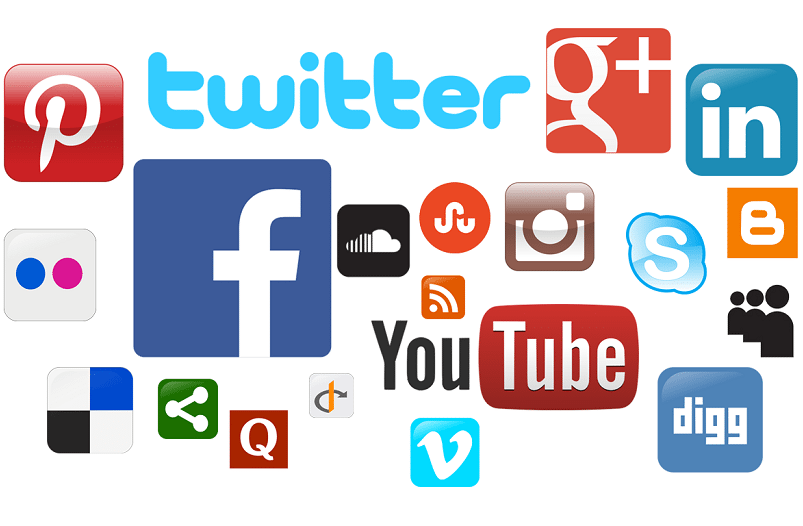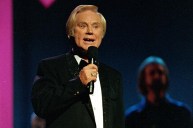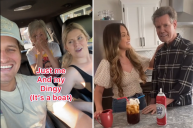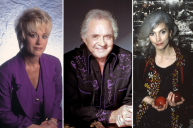Country stars' social media accounts are a double-edged sword. On one hand, attempts by Travis Tritt and others to engage directly with their followers boost country music's fan-centric image. Unfortunately, crooks, liars and people with no lives take advantage of this by creating fake accounts of artists ranging from legends to newcomers — sometimes with malicious intent.
Country Catfish
At a time when "catfish" has a new meaning in the dictionary, impostors pop up all over social media. It seems worse on Twitter, although there's probably more than one "Kenny Chesney," "Carrie Underwood" or "Jason Aldean" on Facebook and Instagram with 20 followers and an offer you should refuse.
If it's just bored people with obviously fake accounts, then what's the big deal? While some of these impostors may just be running deceptively-titled fan pages, others con followers out of money. They digitally panhandle in a way that takes advantage of a hard-working musician's good name.
Tritt uses a lot of his time on Twitter to alert his fans to this issue:
They scam our fans by selling meet & greets, “special tickets”, “private shows”, “previously unreleased music”, limited edition merchandise etc. to people who don’t know any better and think they are communicating with the actual artist. They are committing fraud and making $$$$.
— Travis Tritt (@Travistritt) July 16, 2018
Keith Urban, Blake Shelton, Maren Morris, Jake Owen, Rascal Flatts, Lindsay Ell, Trace Adkins, Kelly Clarkson and other Nashville stars made a PSA that mirrors Tritt's concerns. Despite the video's light-hearted feel, it drives home the point that this problem is widespread and troublesome enough to warrant celebrity involvement.
Spotting a Fake
The video lists some tell-tale signs that an account is bogus. On Twitter, look for the blue check mark that verifies that an account is ran by an artist or their support team. In addition, the real artist likely has way more followers than a phony. For instance, Luke Bryan has nearly 10 million Twitter followers. "Brukelyan0123" probably has 20.
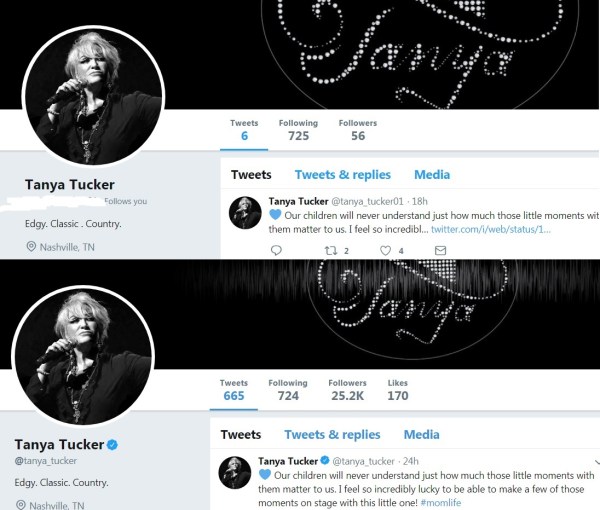
No blue check mark and a low number of followers and posts should be enough for an informed fan to spot a fake. Other reasons to suspect an account might not be on the up-and-up include user names that either misspell the artists' name or include an odd string of numbers.
Even though phonies may be easy enough to spot, it's hard to fault some social media users for wanting to believe the best about their new follower. For example, why wouldn't a new songwriter in Nashville or a potential contestant on The Voice want to think they got a positive message from Dolly Parton or Miranda Lambert? That said, there's no reason to ignore the signs and clog your social media feeds with dishonesty and potential scammers. It's not worth the hassle or the risk.
